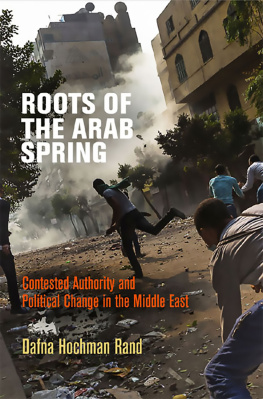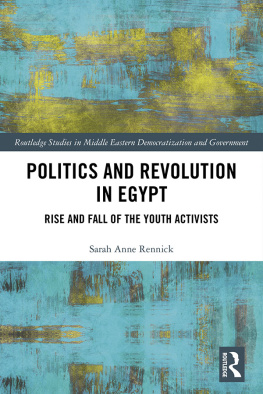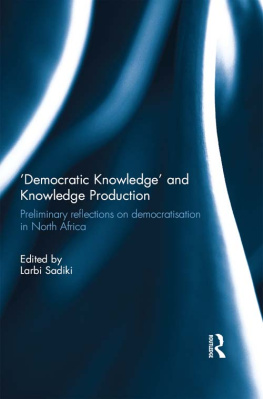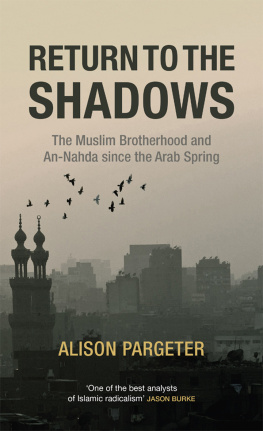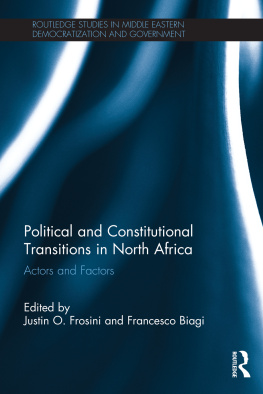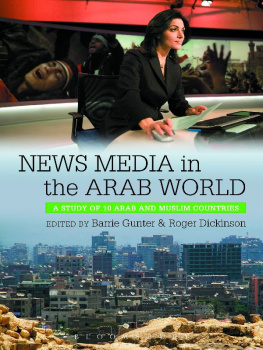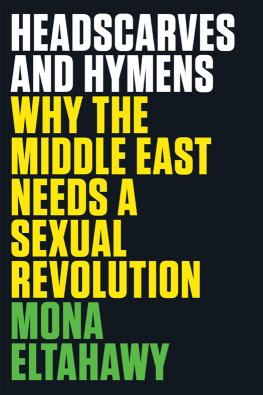North Africas Arab Spring
This book addresses issues surrounding the evolution of the Arab Spring in North Africa. After a general introduction and explanation of the events on a region-wide basis, it turns to examine aspects of each of the countries concerned. The role of the Muslim Brotherhood during the Nasser regime and in the contemporary situation is compared, together with an analysis of the emergence of new political parties in Egypt. The book analyses the links between social media and satellite television during the revolution in Egypt. This is followed by a study of the intellectual and cultural background to the Tunisian revolution and an analysis of the new political parties in Tunisia. It also looks at the revolution process in Libya and concludes with a study of why there was no revolution in Algeria and how the Moroccan monarchy was able to sideline those who challenged it at the price of constitutional changes that are essentially cosmetic.
This book was originally published as a special issue of The Journal of North African Studies.
George Joff lectures at the Department of Politics and International Studies, University of Cambridge, and is Visiting Professor of Geography at Kings College, London University. He specialises in the Middle East and North Africa and is currently engaged in a project studying migrant communities in Europe.
North Africas Arab Spring
Edited by
George Joff
First published 2013
by Routledge
2 Park Square, Milton Park, Abingdon, Oxon, OX14 4RN
Simultaneously published in the USA and Canada
by Routledge
711 Third Avenue, New York, NY 10017
Routledge is an imprint of the Taylor & Francis Group, an informa business
2013 Taylor & Francis
This book is a reproduction of The Journal of North African Studies, vol. 16, issue 4. The Publisher requests to those authors who may be citing this book to state, also, the bibliographical details of the special issue on which the book was based.
All rights reserved. No part of this book may be reprinted or reproduced or utilised in any form or by any electronic, mechanical, or other means, now known or hereafter invented, including photocopying and recording, or in any information storage or retrieval system, without permission in writing from the publishers.
Trademark notice: Product or corporate names may be trademarks or registered trademarks, and are used only for identification and explanation without intent to infringe.
British Library Cataloguing in Publication Data
A catalogue record for this book is available from the British Library
ISBN13: 978-0-415-62319-3 (hbk)
ISBN13: 978-0-415-62983-6 (pbk)
Typeset in Times New Roman
by Taylor & Francis Books
Publishers Note
The publisher would like to make readers aware that the chapters in this book may be referred to as articles as they are identical to the articles published in the special issue. The publisher accepts responsibility for any inconsistencies that may have arisen in the course of preparing this volume for print.
Contents
George Joff
George Joff
Anne Alexander
Daniel L. Tavana
Mohamed Nanabhay and Roxane Farmanfarmaian
Alia Brahimi
Mehdi Mabrouk
Duncan Pickard
John P. Entelis
Driss Maghraoui
George Joff
The following chapters were originally published in Journal of North African Studies, volume 16, issue 4 (December 2011). When citing this material, please use the original page numbering for each article, as follows:
George Joff
The Journal of North African Studies, volume 16, issue 4 (December 2011) pp. 505506
George Joff
The Journal of North African Studies, volume 16, issue 4 (December 2011) pp. 507532
Anne Alexander
The Journal of North African Studies, volume 16, issue 4 (December 2011) pp. 533554
Daniel L. Tavana
The Journal of North African Studies, volume 16, issue 4 (December 2011) pp. 555572
Mohamed Nanabhay and Roxane Farmanfarmaian
The The Journal of North African Studies, volume 16, issue 4 (December 2011) pp. 573604
Alia Brahimi
The Journal of North African Studies, volume 16, issue 4 (December 2011) pp. 605624
Mehdi Mabrouk
The Journal of North African Studies, volume 16, issue 4 (December 2011) pp. 625636
Duncan Pickard
The Journal of North African Studies, volume 16, issue 4 (December 2011) pp. 637652
John P. Entelis
The Journal of North African Studies, volume 16, issue 4 (December 2011) pp. 653678
Driss Maghraoui
The Journal of North African Studies, volume 16, issue 4 (December 2011) pp. 679700
George Joff
University of Cambridge, UK
The events of late 2010 and early 2011 in North Africa have ushered in profound changes in political processes in the Arab world and in our understanding of them. Not only did they give the lie to a widespread assumption amongst policy analysts and, to a lesser extent, amongst academic commentators, that these processes differed fundamentally from what has occurred elsewhere, but they also demonstrated that popular ambitions in the Arab world differed little from those elsewhere as well. Ironically enough, in view of the endless analysis of politics in the Middle East and North Africa in recent years, commentators turned out to be generally ill-prepared to respond to these momentous events.
This publication is an early attempt to contribute to the growing debate about what these events may eventually mean. Early ideas of a domino effect have now been set aside, for it is clear that some attempts to transform regimes through peaceful mass demonstration have ended in tragedy, whilst others have been adroitly managed by the regimes they challenged. And, in at least three cases Libya, Yemen and Syria peaceful challenges to established governments have been met with the full force of state violence, whilst in the Gulf monarchic conservatism has ensured political stasis. Instead, it has become evident that the demonstrations themselves were merely the prologues to complex and lengthy processes of transition that may take years to be completed, in which positive outcomes are not inevitable.
North Africa, where these events began, has been the cockpit in which all four alternatives have emerged. Alongside democratic success in Tunisia and partial success in Egypt, civil war erupted in Libya whilst the Moroccan monarchy successfully managed popular discontent and Algeria, with the memory of its own civil war in the 1990s, sought to pretend that little had changed. North Africa, too, was the test-bed for a new kind of intervention by external powers, the implications of which are still unclear. The engagement of NATO, with United Nations sanction and Arab League approval, in the conflict in Libya has resurrected the debates of the past decade, particularly in the Arab world, about the motives and intentions of Western powers in a region of crucial global importance because of its location and energy resources.
Indeed, the issue of Western engagement now hangs over discussion, particularly in Egypt, Libya and Tunisia, about the future course of political transformation. Europe, in particular, has had to revise its assumptions about the role of political Islam a phenomenon not prominent in the actual challenges to regimes but certain to play a major role in the political transformations that have followed them. Then there is the difficult problem of migration and European policies of securitisation in which, in the past, Brussels has expected North African states to act as its first line-of-defence in return for adopting their narratives of threat. Behind both concerns is an even more fundamental problem; the European vision of the development process and of the political changes that were intended and expected to form part of it. The simple fact has been that that vision has failed and new and more egalitarian concepts of engagement will be needed.


